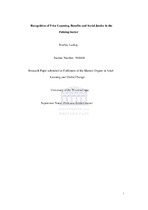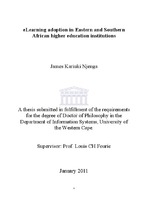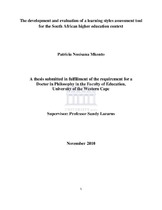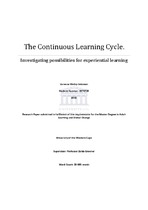| dc.contributor.advisor | Groener, Zelda | |
| dc.contributor.author | Lackay, Bradley | |
| dc.date.accessioned | 2016-10-07T13:34:09Z | |
| dc.date.available | 2016-10-07T13:34:09Z | |
| dc.date.issued | 2015 | |
| dc.identifier.uri | http://hdl.handle.net/11394/5281 | |
| dc.description | Magister Educationis (Adult Learning and Global Change) - MEd(AL) | en_US |
| dc.description.abstract | Conceptualised within Habermasian critical theory, the conceptual framework includes concepts such as domination, emancipation and emancipatory education, and frames RPL as emancipation. Recognition of prior learning is promoted by the South African government as an instrument for access and redress. This research paper focuses on an investigation into the benefits of the implementation of RPL policies and practices in the policing sector. Findings reveal that the participants in the study who are employed in the policing sector enjoyed a wide range of emancipatory benefits, including access to formal academic programmes. Furthermore, these programmes enabled historically disadvantaged staff to gain formal qualifications which in turn provided access to higher salaries and promotions. Explaining the latter as redress, I argue that RPL is a form of emancipation that has liberated disadvantaged staff from apartheid discrimination and domination. | en_US |
| dc.language.iso | en | en_US |
| dc.publisher | University of the Western Cape | en_US |
| dc.subject | Workplace Learning | en_US |
| dc.subject | Adult learning | en_US |
| dc.subject | Recognition of prior learning | en_US |
| dc.subject | Experiential learning | en_US |
| dc.title | Recognition of prior learning, benefits and social justice in the policing sector | en_US |
| dc.rights.holder | University of the Western Cape | en_US |




